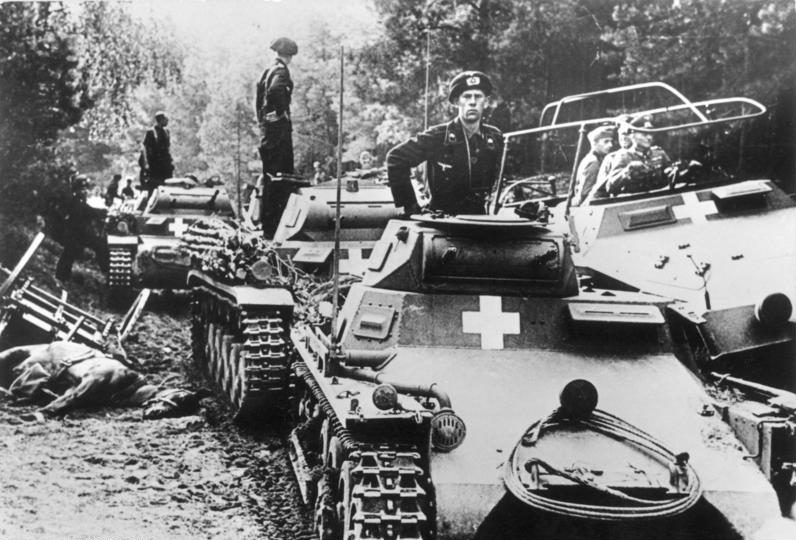
This past fall, in September 2022, on the occasion of the commemoration of the 83rd anniversary of the invasion of Poland by Nazi Germany, the Polish government announced its wish that Germany pays Poland the sum of €1.3 billion as reparation for the period of occupation during World War II.
Prime Minister Mateusz Morawiecki said that this was a matter of justice, not only to settle the past but also to compensate for the burden on Poland’s future. In 1953, however, the Polish government of the time had signed a declaration in which Poland agreed to refrain from making any demands for reparations. But the Polish authorities today believe that this agreement is not valid, since it was signed under pressure from the Soviet Union. Furthermore, the Polish resolution was sent only to the government of East Germany, the German Democratic Republic; the Poles argue that the declaration could neither then nor now reflect commitments between the two countries.
Morawiecki also justified the Polish demand by drawing a parallel between the Nazi aggression against Poland in September 1939 and the Russian invasion of Ukraine in February 2022. Asking for reparations from the Germans is, in his view, a way of ensuring that, when the time comes, the Russians will pay for the destruction of Ukraine.
Germany has now rejected the Polish request. According to the Polish foreign ministry’s statement, “the German government considers the issue of reparations and compensation for war losses to be closed” and has no intention of “negotiating on this matter.” It considers Germany’s attitude in response to its request as “absolutely disrespectful,” and believes that Germany persists in treating Poland as a “vassal state.” Polish Deputy Foreign Minister Arkadiusz Mularczyk criticised the fact that the German response came without leaving room for discussion or negotiation.
The German refusal is not a surprise for the Poles. Berlin refused a similar request from the Greek authorities a few years ago. In October, Foreign Minister Annalena Baerbock had already been very clear on the Polish issue: she recognised Germany’s responsibility for the suffering of millions of Poles but considered the issue of reparations closed. But the Polish government does not intend to give up on the matter and explains that it “will continue its efforts to settle the claims resulting from German aggression and occupation in the years 1939-1945.” Anticipating this response, Warsaw undertook to internationalise its claim by seeking arbitration by the Secretary General of the Council of Europe, the Committee of Ministers of the Council of Europe, and the United Nations.
According to several opinion polls conducted in both countries, 75% of Germans are opposed to reparations to Poland, while 66% of the Polish population is in favour of a payment from Germany.
